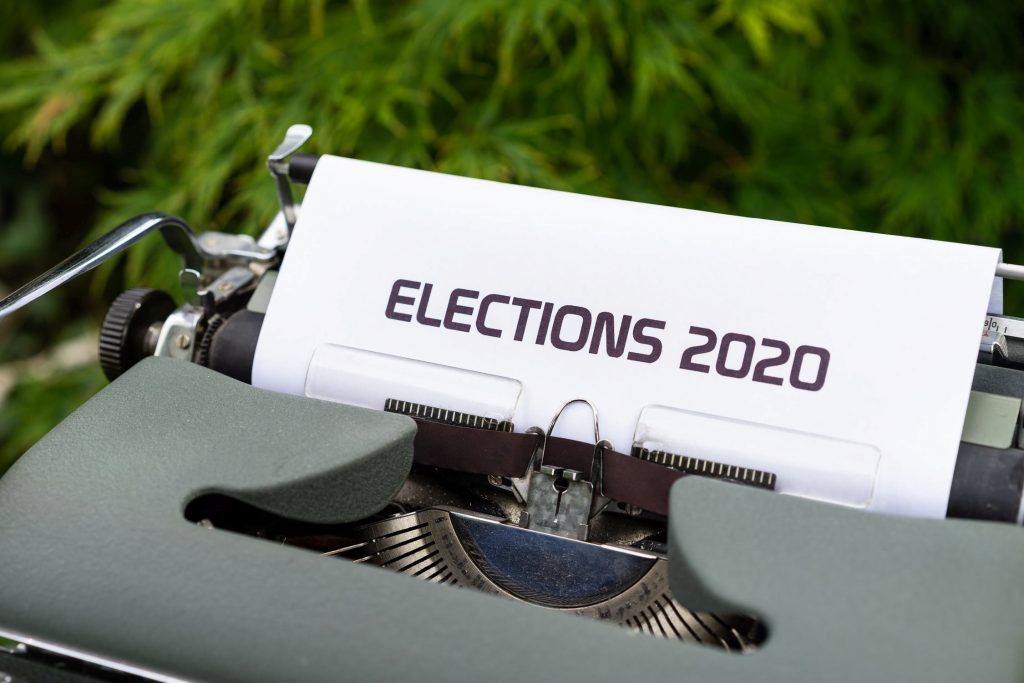Arleen Westerhof – Januari 14th, 2021
The Trump Prophecies. Lessons for the Prophetic Movement
Arleen Westerhof, Initiator Netherlands Prophetic Council
Joe Biden is now the 46th President of the United States in spite of the many prophecies from respected prophets who claimed that God showed them that Donald Trump would win the election. Some even said that Trump would win the election by a landslide. This obviously didn’t happen. In order to prevent prophecy from being discredited and even rejected by large segments of the Church, it is important that we take a step back to look at what happened so that we can learn from this.
It is not my intention to point the finger. My drive has always been to help create healthy prophetic cultures in the nations. Prophecy is meant to be a blessing, but it can also do much damage. In this article I discuss how so many people could have gotten it wrong and what we as God’s prophetic people need to learn as a result.
Not false prophecy, but inaccurate prophecy from the soul
First, I do not believe that what happened was “false” prophecy. The word “false” is derived from the Latin word “fallere” which means “to lie” or “to deceive”. “False prophecy” is prophecy given in a conscious attempt deceive and to mislead. False prophecy has to do with the motives of the heart of the person prophesying and not with the prophetic word itself. Many of those who prophesied a Trump victory truly believed that what they had heard was from God. Their motive was not to mislead the body of Christ. Rather, what we’ve seen are examples of “inaccurate” prophecy (prophecy that doesn’t line up with the facts) and perhaps even “presumptuous” prophecy.
The Bible is clear when it says that all prophetic words must be tested (1 Thess. 5:21) and, as far as possible, we also need to pay attention to the character of the person delivering the prophetic word. Gone are the days when prophets were just mouthpieces delivering a message. Our characters need to back up the prophetic words that we give.
So the question is clear: what happened here? Below I give a number of possible explanations:
- The prophetic words about Trump’s victory could have been presumptuous. Both the prophets who prophesied his victory, and some parts of the Church, failed to discern what came from their own soul (mind, will, opinion, belief, and doctrine) and what came from the Holy Spirit. Sometimes we want something to happen so badly that we think that God wants it too (Eze. 14:4).
- Some people failed to recognise their own area of authority in prophecy. If we do not recognise our mandate there is a good chance that we will make mistakes. 1 Corinthians 14:3 says that the gift of prophecy is for encouragement, comfort and for building people up. Many people can deliver an accurate personal prophetic word when they function in the prophetic gift, but not everyone is called to prophesy about nations or national issues.
- People allowed themselves to get carried away with the masses and copied the prophetic words of others.
- Prophetic words are conditional. Prophets are called to prophesy the will and the heart of God. There are however examples in the Bible where God’s will didn’t happen due to unbelief and disobedience on the part of the people, eg. It was God’s will and heart that all of the children of Israel who left Egypt with Moses would enter Canaan. Their unbelief and disobedience however presented them from entering.
- Several prophets received threats from Christians when they prophesied last year that Donald Trump would not be re-elected. Emotions have run so high that families have argued and separated from each other because part of the family voted for one candidate and the other for the other candidate.
- Knowing that they would not be heard. A number of prophets have said that so many of their prophet friends were convinced of Trump’s victory that they knew they would not be heard if they prophesied otherwise. Others kept quiet about what God was saying to them because they didn’t want to discredit their friends.
Partiality
When we choose to support a specific candidate in our prophesying, we run the risk of losing our credibility. We will most likely not be able to bring a word of correction to the person whose side we have taken. Nor will we be listened to when God calls us to give a prophetic word to the candidate(s) from the other side.
In 1 Kings 22, four hundred prophets prophesied that God would give victory in war to King Ahab and King Jehoshaphat. Only Micah the prophet prophesied that King Ahab would be killed. The four hundred prophets wanted to please Ahab with their prophesying, but Micah only wanted God’s approval. Even if it led to his own death.
Being someone who trains and coaches prophets, I will never express a preference for a specific political candidate in my prophesying publicly. Several people asked me before the elections what I was thinking and I have not answered this because I have to be ready to go and prophesy over whoever He sends me to.
Lessons we need to learn from this
- Learn to test prophetic words and impressions. The Bible teaches that the responsibility to test a prophetic word always rests with those who hear the word: “Test everything and keep it good.” 1 Thess. 5:21. The fact that so many people are surprised with this result shows that we as a Church failed to do this adequately and that we must learn to apply this more often.
- Recognise the role of spiritual advisers and prophetic fathers and mothers in the Church. They help us to discern correctly what God is saying and make wise decisions about how and when to release prophetic words. Too often we act in the prophetic on the basis of our “feelings.” This is highly subjective and too fallible to form a firm foundation for making important decisions: “The heart is deceitful above all things and desperately wicked. Who can know it?” (Jer. 17:9).
- Be humble and be accountable for the prophetic words we bring. We need to say sorry when we make mistakes. Pay attention! This is also necessary for Christians who function in the other gifts of the Spirit, and not just prophets.
- Prioritise the love of Christ. If our political bias makes us turn away from a brother / sister in the Lord, then we are not functioning in God’s love and all of our revelation means nothing (1 Cor. 13:2).
- Obey God’s Word and do not despise prophecy. We are commanded not to stop prophesying, but instead to be trained so that we can hear God’s voice more accurately and apply proper protocol when delivering prophetic words.
Conclusion
The Prophetic Movement came into its own in the late 1980’s of the previous century. This means that it is a relatively young movement in comparison to that of pastors and teachers. These offices have been around since the Reformation more than 500 years ago. God is restoring the prophetic gift to His Church and He’s raising the authority of our prophetic proclamations. It is therefore important that the prophetic movement matures. Being willing to look at what went wrong and address these issues will play an important role in the maturing process.



